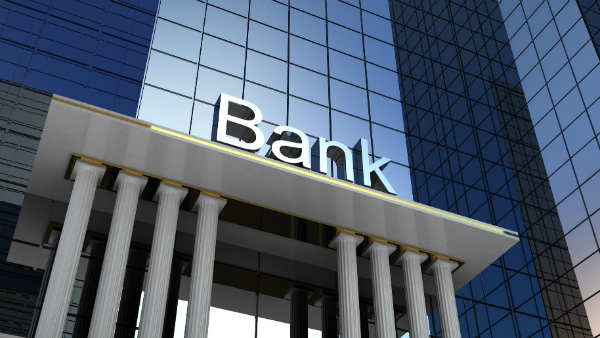We all know applying for a loan isn’t the most straightforward thing. Everything from your credit history to your job type (sorry, freelancers) is taken into account.
And above all, loan officers can be very strict when it comes to scrutinizing these factors. One of the first things your bank will look at it is your Debt Service Ratio (DSR).
If you’ve tried applying for a car or home loan, you probably have a rough idea of what it is, or at the very least, that it plays a major role in whether your loan is approved or not.
But do you know how DSR actually works?
What Is Debt Service Ratio (DSR)?
The DSR meaning can be put simply as "a method used by banks to calculate whether or not you can afford the loan you’re applying for".
In terms of a home loan, this formula essentially helps the bank estimate how much you can afford to fork out for your monthly instalments.
Based off your monthly net income and the total fixed debt you have to pay each month for your student and car loans etc, banks can see for themselves if the property you’re trying to obtain is within your financial limits.
From there, they can decide whether or not you’re applicable for the loan you’re trying to apply for.
PropertyGuru Tip
Banks want to see if you’re able to repay your home loan, and if it seems like you’ll have a tough time scraping by just to pay them back, it’s highly likely they’re not going to approve your loan.
Your DSR is then compared against the bank’s maximum allowable DSR limit, and if your DSR doesn’t exceed the limit, Ta-da! You’re one step closer to receiving the home loan you applied for.
Now, one thing to keep in mind: Every bank has their own distinct requirements depending on the individual. So while some banks may accept a DSR of as high as 80%, others may only allow 50%.
The DSR limit also varies according to each individual and their respective levels of net income. Some high net-worth individuals are even allowed a DSR of 100%! So as you can see, it’s all quite relative.
And that’s not all, aside from different DSR limits, calculation methods also vary from bank to bank. So don’t be surprised if your DSR at Bank A might add up to just 40% (hurrah!), but at Bank B, it works out to be 70%!
How Do You Calculate DSR?
In general, the formula used to calculate an individual’s DSR is the net income (after tax and EPF deduction etc) divided by the total monthly commitments including the home loan you’re applying for.
From there, simply multiply the figure by 100 to receive your final DSR in percentage (%). Don’t get confused just yet! Here’s an example of what the formula looks like.
P/S: If you find yourself still struggling with figuring out your score, you can search on Google for a suitable DSR calculator to help you out!
So, what exactly defines a commitment? In the context of your DSR, it means all bank and non-bank debt.
Bank debt includes your car loan, credit card bills, and personal loans. Non-bank debt, on the other hand, consists of monthly repayments such as PTPTN.
Basically, all the monthly obligations and fixed expenses make payday much less exciting.
As for income, remember that banks will look at your net income only after the deduction of all statutory deductions like zakat, EPF, SOCSO, and taxes.
To give you a better picture, say your net income is RM6,000 a month. Your total monthly commitments adds up to RM2,500 and you’re trying to apply for a loan with a monthly repayment of RM1,200.
RM2,500 + RM1,200 = RM3,700, now divide that figure by RM6,000 and you’ll end up with 0.617. Multiply that by 100 and your DSR works out to be 61.7% which is slightly high.
So, it’s safe to say that you just might have trouble getting approved for your loan. Still confused? Here’s a complete DSR calculation for you:
Total Monthly Net Income:
| Gross Income (Basic salary + Fixed allowance) | RM7,000 |
| EPF Deduction | RM550 |
| SOCSO Deduction | RM50 |
| Tax Deduction | RM400 |
| Monthly Net Income | RM6,000 |
Total Monthly Commitments:
| Personal Loan | RM1,200 |
| Car Loan | RM800 |
| PTPTN Loan | RM200 |
| Credit Card | RM300 |
| Total Monthly Commitments | RM2,500 |
| DSR (without new housing loan): (RM2,500/RM6,000) x 100% = 41.7% |
With new housing loan repayment of RM1,200:
| DSR (with new housing loan): (RM3,700/RM6,000) x 100% = 61.7% |
Where Can I Find Records Of My Monthly Commitments?
Your monthly commitments would be mostly made up of loans, PTPTN and credit card repayments, among others.
So, an easy way of keeping track of all these records are via CCRIS, where all your monthly commitments and study loans are traceable and easily accessible.
If you’re looking for another alternative closer to home or for your convenience, you can create your own financial spreadsheet, or use one of the many financial apps downloadable on your smart device.
Monthly bank statements would help too!

What Affects My DSR?
Whether it’s good or bad, your DSR can be affected by several factors.
For instance, if you don’t have a stable monthly income, it may have a disadvantageous effect on your loan repayment.
This signals prospective banks that even if they give you a loan, you have a medium to high chance of not repaying it. Too many monthly payments or loans contribute to that as well.
Your employment status matters too, as banks will take into account your job industry (e.g. the civil sector) and period of employment to determine if it’s a steady occupation.
A sketchy credit history and bank account can also make or break your DSR, so be smart with your financials and credit.

How Can I Improve My DSR?
As mentioned, your DSR should be no more than 30 – 40%. And though many banks might still consider your loan application even with a DSR of 70%, it’s better to play safe and prevent a history of too many loan rejections. Improving your DSR starts with:
- Either reducing your debt or increasing your net income. So start rushing to pay off big-ticket debts!
- You can also consider consolidating your debt for unsecured loans (not tied to any collateral) like PTPTN and credit card bills. This is an easier way to manage all your debt and might actually even help you save on interest.
Whether you choose to start a small business on the side, get into freelancing, or ask for a pay raise, make sure the income received is legitimate by maintaining proper financial records and contributing to your EPF regularly. (Yes, you can self-contribute to your own EPF!)
But your DSR isn’t the only thing that will make or break your loan application. Your credit score will too!
All those missed or late repayments are going to end up in your CCRIS and CTOS records, so be sure to check your statuses to avoid a surprise when you try applying for a home loan.
And if you don’t have any credit history at all? Well, don’t get your hopes up too high just yet. This is because, in the eyes of the bank, a person with zero credit history also means zero credibility.

There’s Another Factor You Need To Consider – Affordability!
The DSR only calculates your total debt against your net income and indicates whether you are eligible for the home loan you’re applying for.
Now, what many fail to understand is that eligibility and affordability are two completely different things.
This is because your monthly commitments are not the only expenses you have to fork out. What about the other non-fixed expenses such as basic necessities like food and utilities?
Furthermore, when buying a property, there are a whole host of other miscellaneous fees which can add up to become quite a hefty number.
Among them include the fee for transfer of ownership title, SPA legal fees, SPA stamp duty and the heftiest of them all – the down payment!

The down payment is typically 10% of the property’s value if it’s your first or second property, and 30% if it’s your third. Here’s what to expect when making your first down payment.
The costs involved in buying a property are far bigger than the eye can see at first glance, and the last thing you’d want is for your carefully thought-out finances to be ruined by a sudden big-ticket fee you didn’t know about.
A wise rule to follow would be to keep all housing-related costs below 25% of your monthly gross income.
Discover properties for sale
My Loan Application Was Rejected. What Do I Do?
Don’t let one rejection get you down, as there are many ways you can avoid that from happening again in the future.
If your loan was rejected because of your DSR, you can improve by cutting down on current debts, plus consolidating your loans and bills together.
However, if your DSR is in the green and you’re still rejected, it could be because of the bank you’ve applied with.
Every bank has their own guideline for the maximum allowable DSR they can accept hence, the approval or rejection lies within the bank’s policies.
With that, now you can research and talk to banks on whether or not your DSR will be accepted by them based on their guidelines.
Approach as many banks as possible to get a better understanding and comparison.
And sometimes, it’s the little things like submitting wrong/outdated documents, accidentally filling out the application form incorrectly, or even attaching a blurry copy of your ID that’ll cause your loans to be rejected.
Make sure to double-check and triple-check your documents, or ask a trusted person to look through your documents thoroughly before sending them out.
Now You Know How To Breeze Through Getting A Home Loan!
Now that you’ve armed yourself with some knowledge on the meaning of DSR in Malaysia and how the banks perceive you as a borrower based on it, here are a few key takeaways for you.
- Try to maintain your DSR within the 30-40% range. For individuals, the lower your DSR, the better.
- Find out what the bank’s maximum allowable DSR limit is before applying. You’ll save yourself (and the bank!) a lot of time and money.
- Your DSR isn’t the only thing the banks will look at. Keeping a good credit score is just as important as well.
- Debt isn’t necessarily the devil. Banks are just as wary of individuals with zero liabilities. You can get started by applying for a credit card but do ensure you make prompt payments!
Relevant Guides:
Disclaimer: The information is provided for general information only. PropertyGuru International (Malaysia) Sdn Bhd makes no representations or warranties in relation to the information, including but not limited to any representation or warranty as to the fitness for any particular purpose of the information to the fullest extent permitted by law. While every effort has been made to ensure that the information provided in this article is accurate, reliable, and complete as of the time of writing, the information provided in this article should not be relied upon to make any financial, investment, real estate or legal decisions. Additionally, the information should not substitute advice from a trained professional who can take into account your personal facts and circumstances, and we accept no liability if you use the information to form decisions.







